The Netherlands has perfected the art of living with water rather than fighting against it. This innovative approach extends beyond their famous dikes and polders into remarkable floating architecture that turns waterways into prime real estate.
Dutch designers have embraced their watery surroundings by creating floating accommodations that combine practical solutions with unforgettable experiences. From converted cargo vessels to purpose-built floating villas, these aquatic stays showcase Dutch ingenuity while offering guests the gentle rocking motion that somehow transforms ordinary sleep into something extraordinary.
Here is a list of 15 remarkable floating hotels across the Netherlands where the water beneath your bed becomes part of the experience rather than just scenery viewed from a window.
The Crane Hotel Faralda
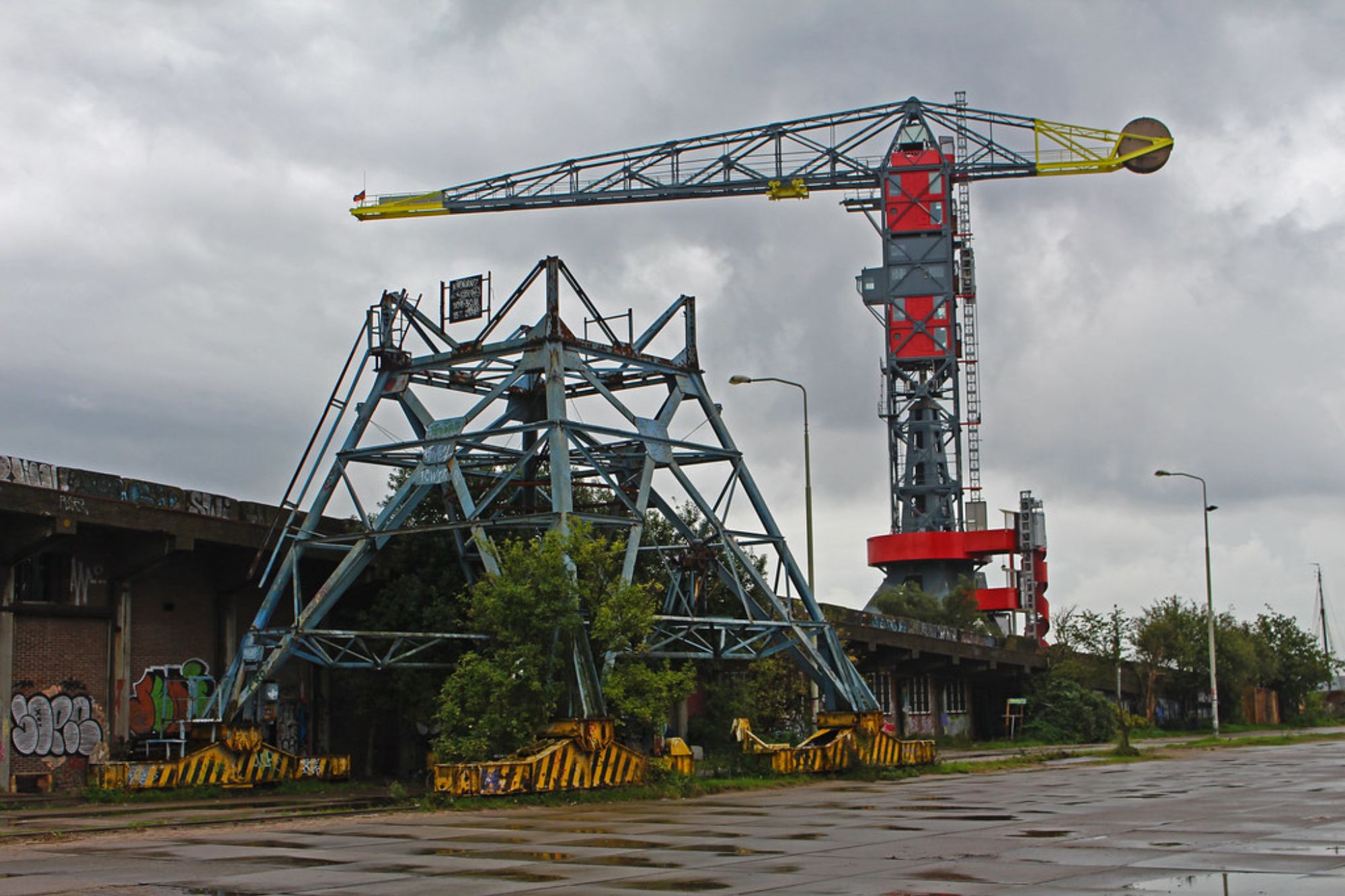
This daring conversion transformed a massive industrial crane – once used in Amsterdam’s NDSM shipyard – into three luxury suites suspended 164 feet above the IJ River. Each uniquely designed suite occupies a different level of the crane structure, featuring panoramic windows that frame water views from this exceptional vantage point.
The cherry on top waits at the crane’s highest level—a hot tub where guests soak while watching boats navigate the busy harbor below. The slight sway felt during stronger winds adds thrilling authenticity to this industrial-maritime experience.
Room Mate Bruno
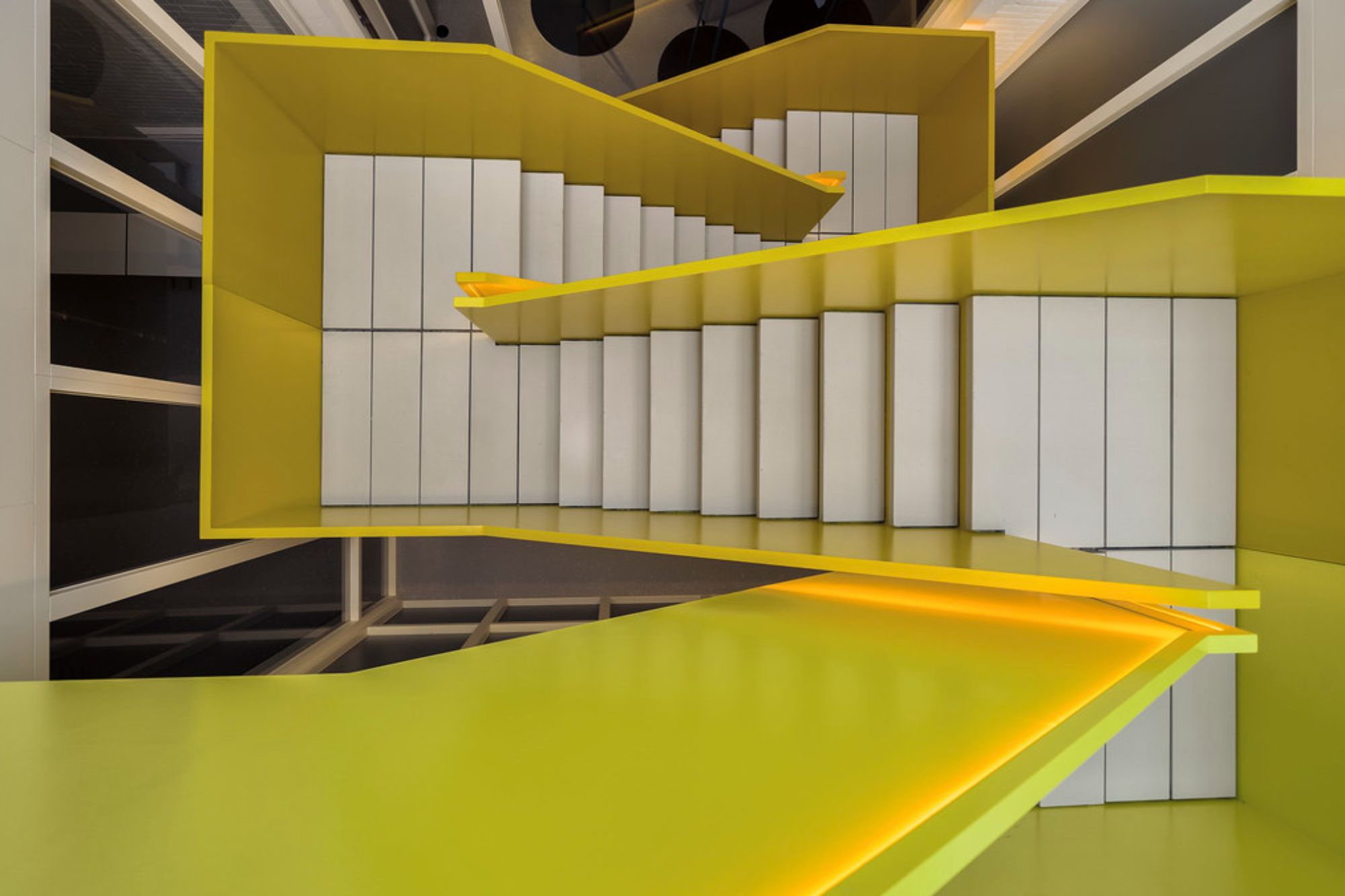
This floating boutique hotel occupies a former tea warehouse in Rotterdam’s historic Kop van Zuid harbor district – creating stylish accommodation that honors both maritime and colonial trading history. Floor-to-ceiling windows frame harbor views where massive ships still pass, connecting guests to the city’s continuing role as Europe’s largest port.
Designer Marcel Wanders incorporated nautical elements throughout without resorting to clichés, instead creating contemporary spaces with subtle maritime references. The hotel’s position atop the water puts guests in prime position to explore Rotterdam’s celebrated floating architectural wonders, including the nearby Floating Pavilion.
Botel Amsterdam
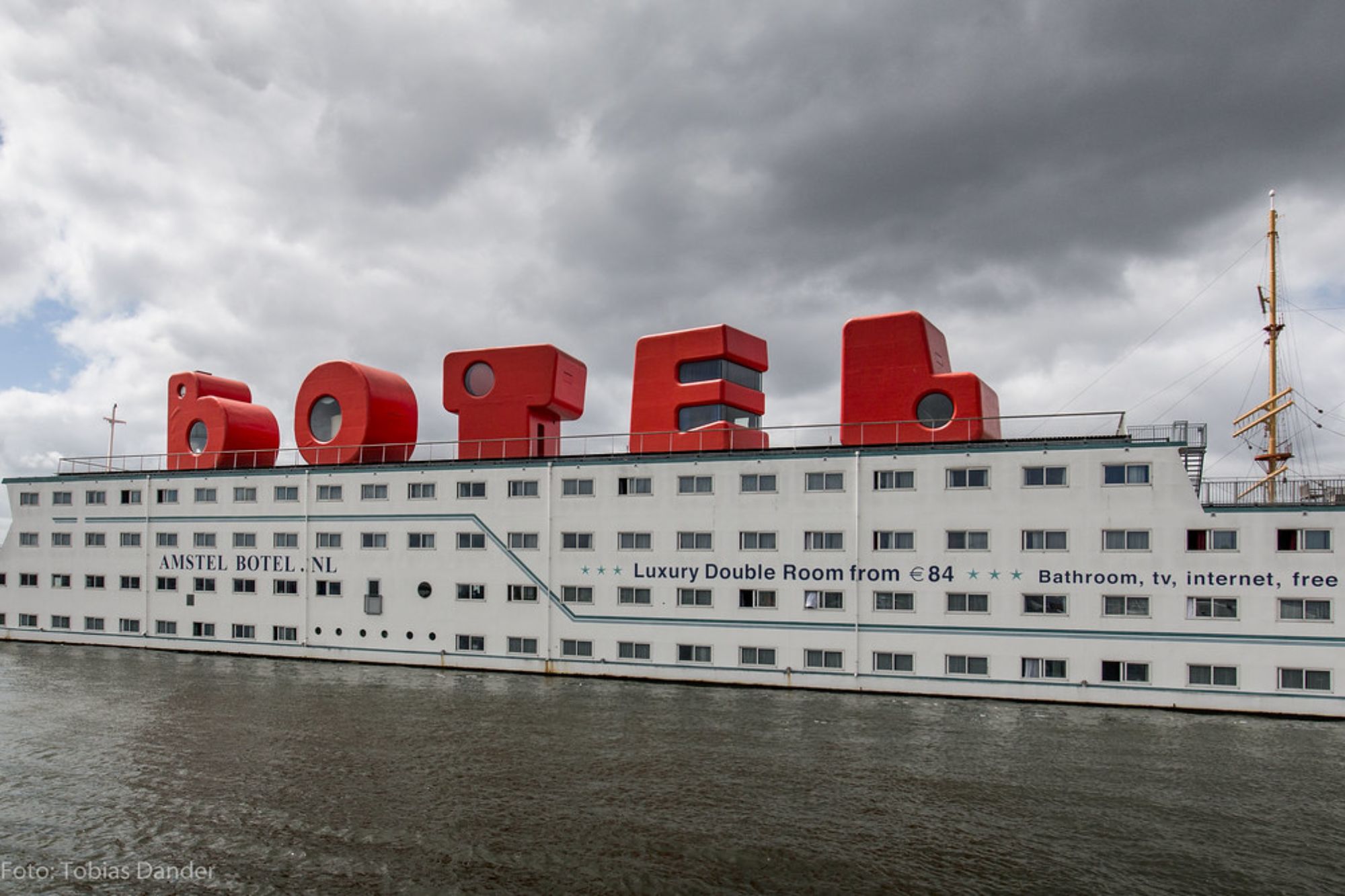
This converted river cruise ship permanently docked near Amsterdam Centraal Station offers straightforward accommodations with unbeatable waterfront accessibility. The four-deck floating hotel retains much of its original maritime character – complete with cabin-style rooms and porthole windows in some units that create an authentic nautical atmosphere.
Guests enjoy drinks on the panoramic upper deck, where uninterrupted views capture Amsterdam’s waterfront life, from passing vessels to dancing reflections from historic buildings lining opposite shores. The gentle rocking sensation creates surprisingly restful sleep conditions for most visitors.
Like Travel Pug’s content? Follow us on MSN.
The Harbour Crane
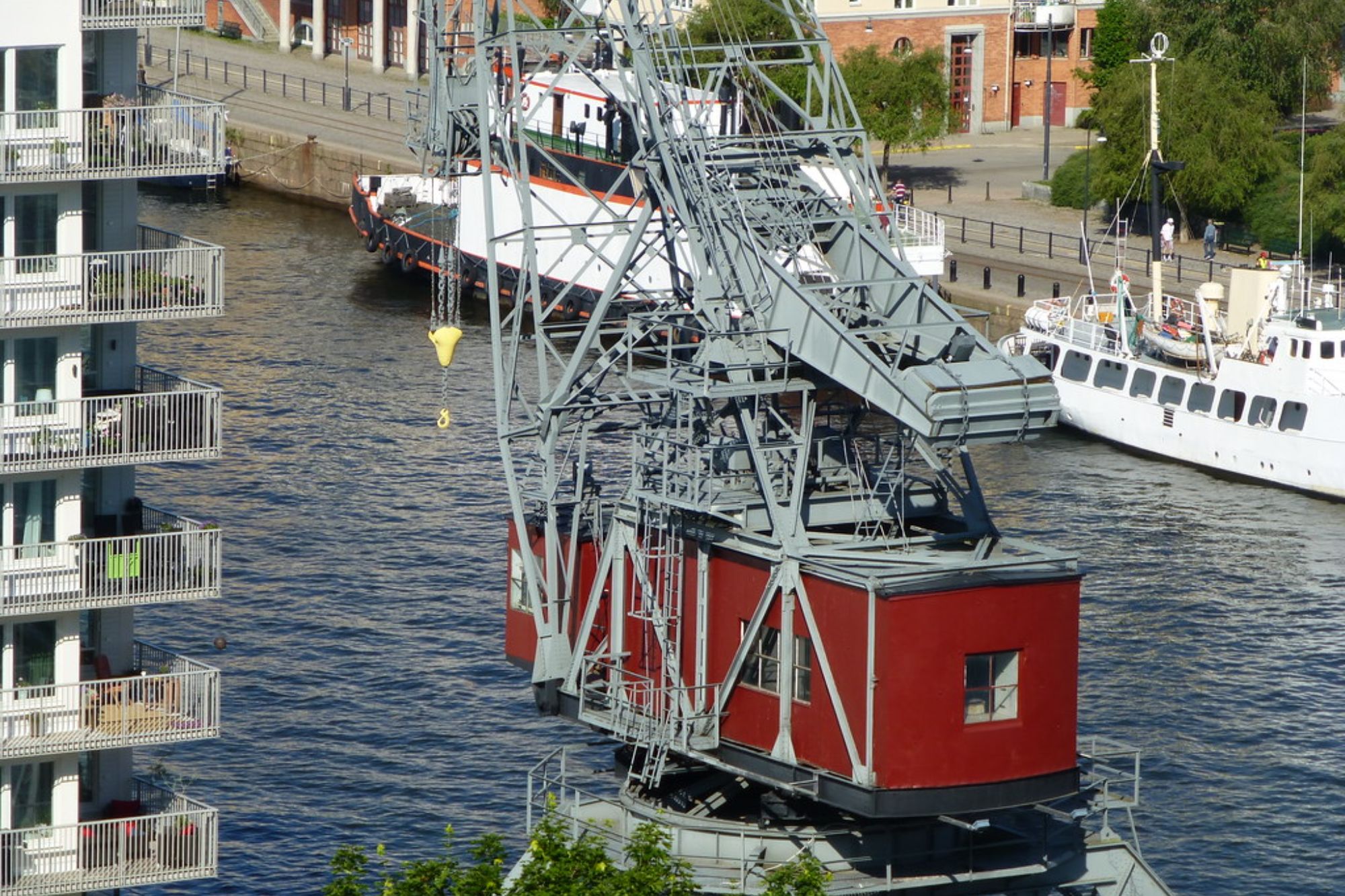
Located in Harlingen’s working harbor, this converted crane allows guests to operate the actual controls – rotating their accommodation 360 degrees to create personalized views of the Wadden Sea. The surprisingly spacious interior features maritime-industrial design elements alongside luxurious touches, including rainfall showers and designer furniture.
Breakfast arrives via an ingenious pulley system that delivers a basket directly to the elevated cabin without disturbing guests’ privacy. The unusual accommodation attracts architectural enthusiasts alongside romantic couples seeking one-of-a-kind overnight experiences.
Hotel De Barge
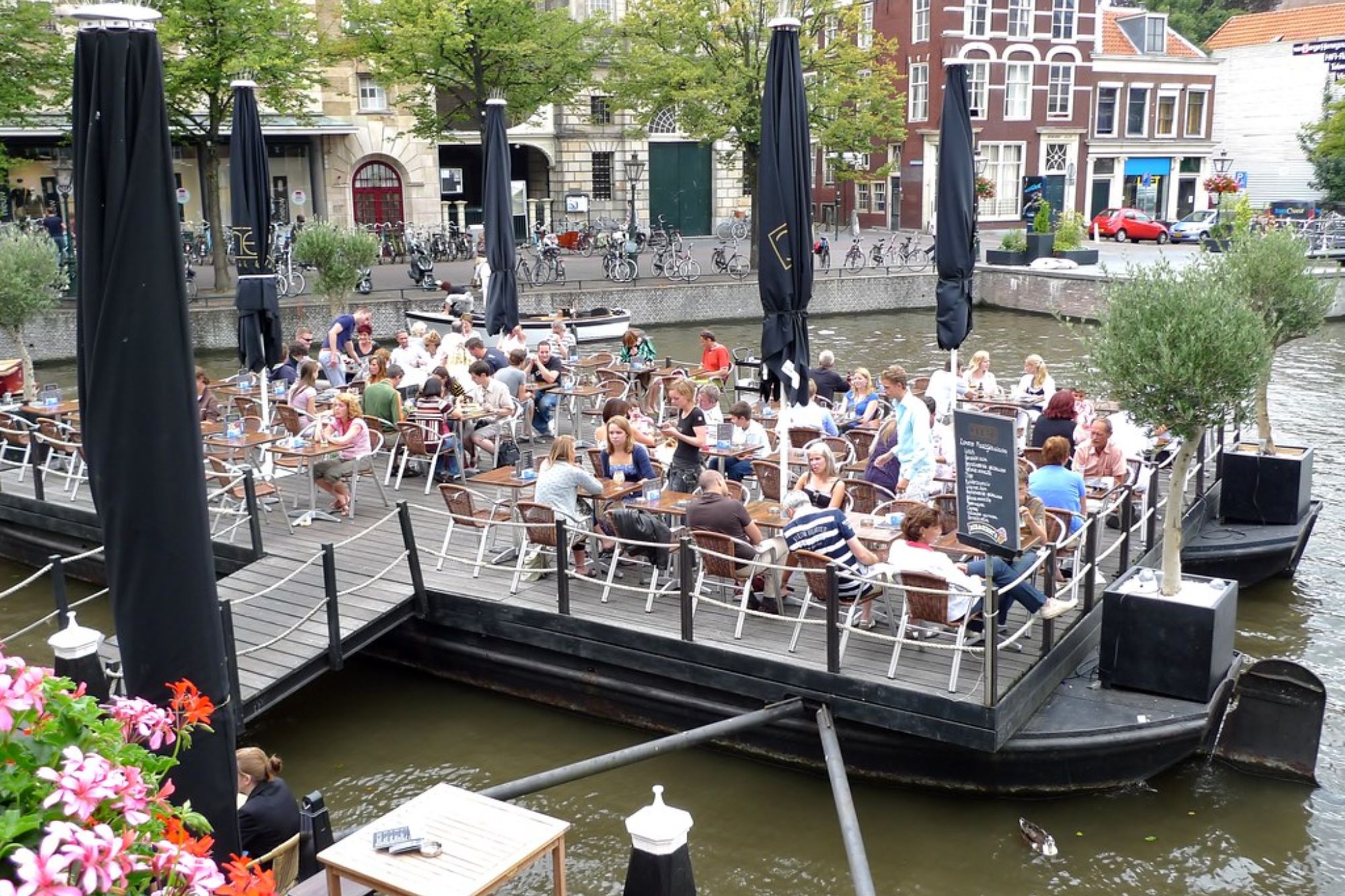
This classic Belgian barge converted into floating accommodations celebrates Groningen’s canal heritage through thoughtfully preserved nautical elements. Original wood paneling and brass fittings maintain authentic character, while modern amenities ensure contemporary comfort within the historic vessel.
Each cabin features unique dimensions and characteristics reflecting the ship’s original layout rather than standardized hotel design. Morning coffee on deck provides meditative moments, watching rising mist from canal waters while the city gradually awakens around you.
SS Rotterdam
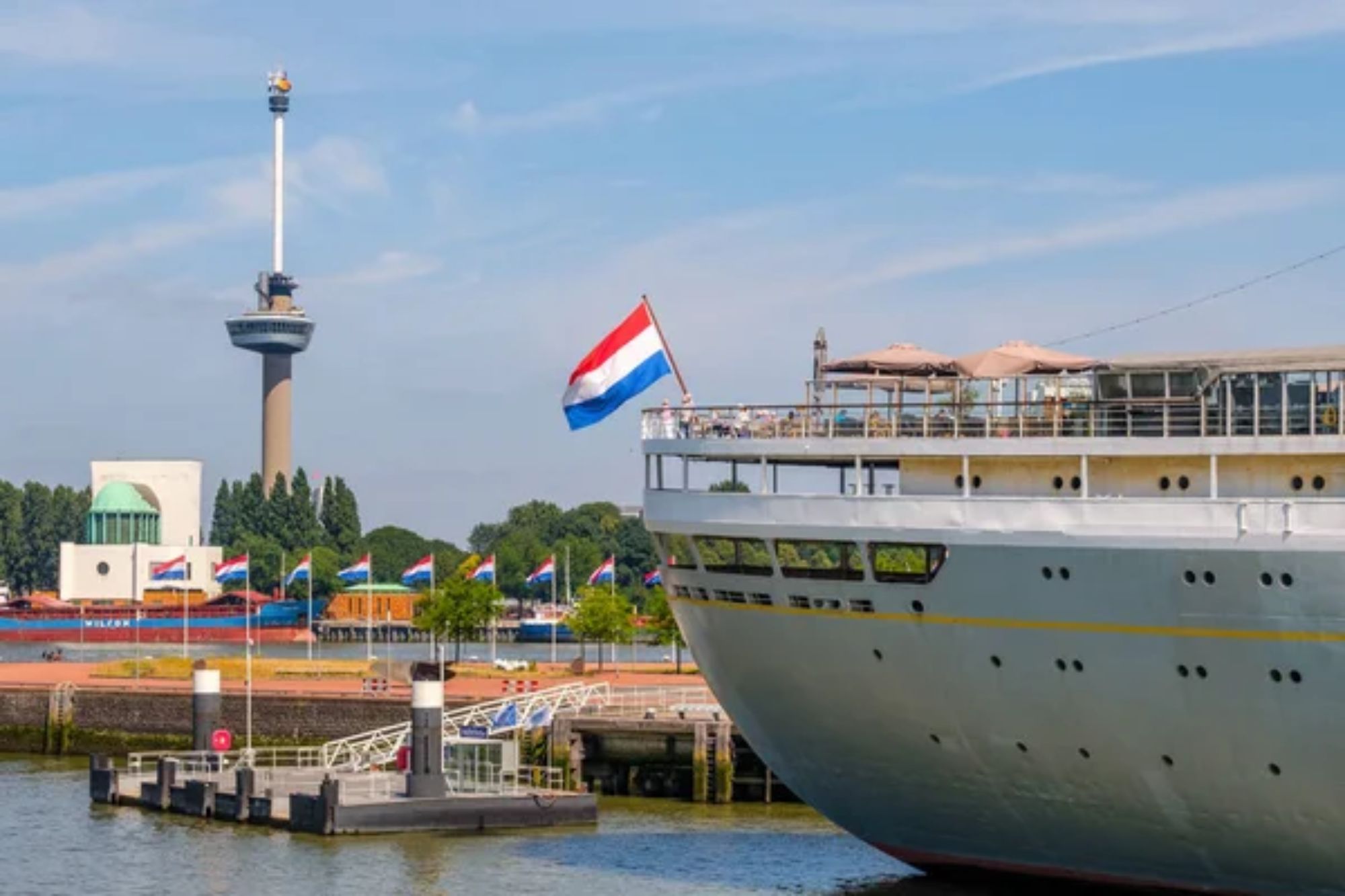
This retired ocean liner – once the flagship of the Holland America Line – now serves as a floating hotel, museum, and event space in Rotterdam harbor. The meticulously preserved 1950s luxury vessel retains original Art Deco features alongside carefully selected mid-century modern furnishings that maintain period authenticity.
Guests choose between original passenger cabins or converted crew quarters, each offering different perspectives on maritime travel history. The vessel’s enormous scale allows for multiple restaurants, pools, and entertainment spaces rarely found in floating accommodations.
Like Travel Pug’s content? Follow us on MSN.
Amstel Botel
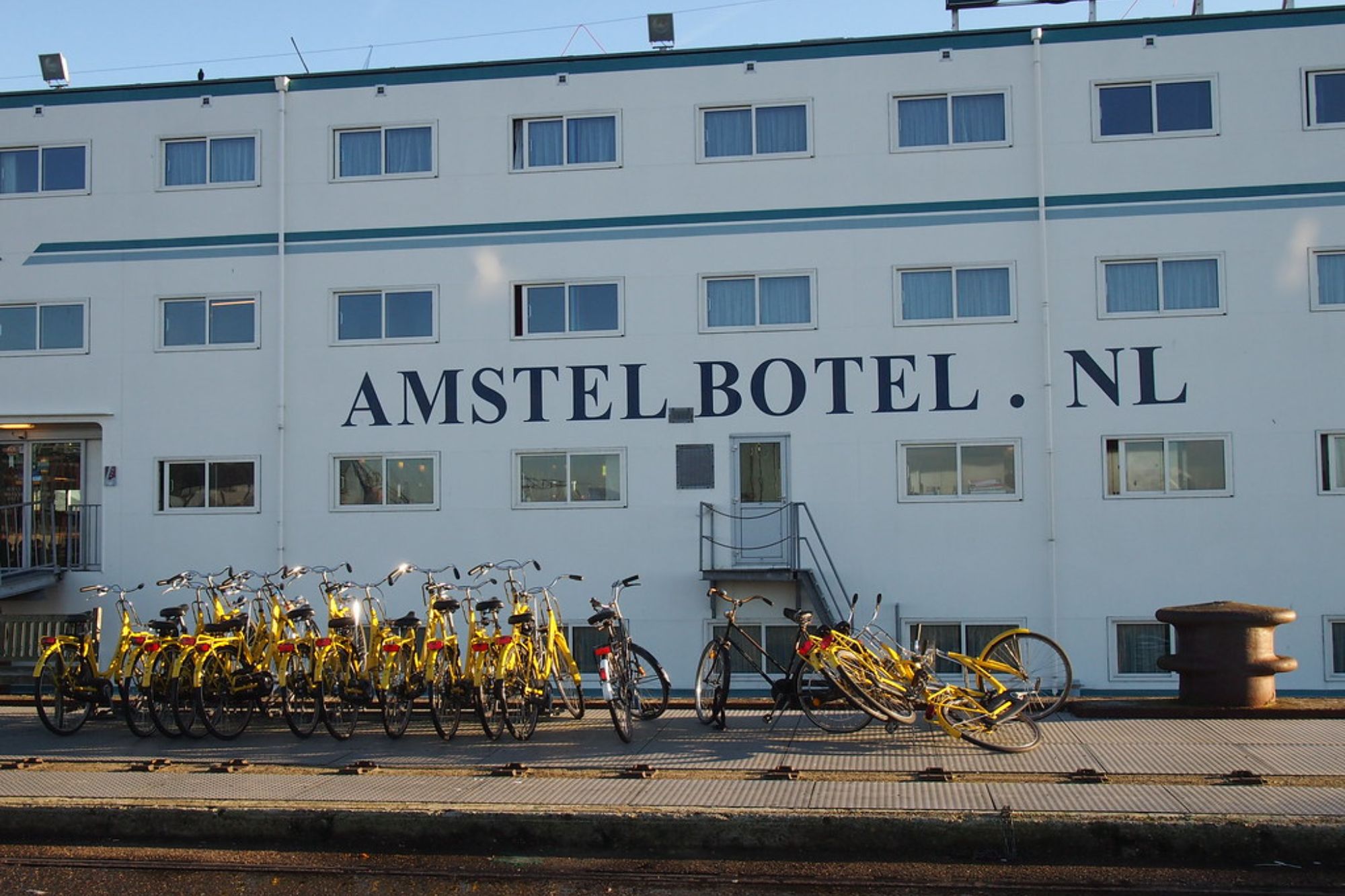
This purpose-built floating hotel near Amsterdam Noord offers straightforward accommodations with water views at more accessible price points than central canal options. The distinctive white structure resembles a modern apartment building rather than a traditional vessel, yet still provides an authentic floating hotel experience with gentle movement during passing boat traffic.
Floor-to-ceiling windows in public spaces frame panoramic water vistas that change throughout the day as light conditions shift across the harbor. The hotel’s position away from central tourist areas provides glimpses into working maritime Amsterdam rarely experienced by typical visitors.
Landgoed Duin & Kruidberg
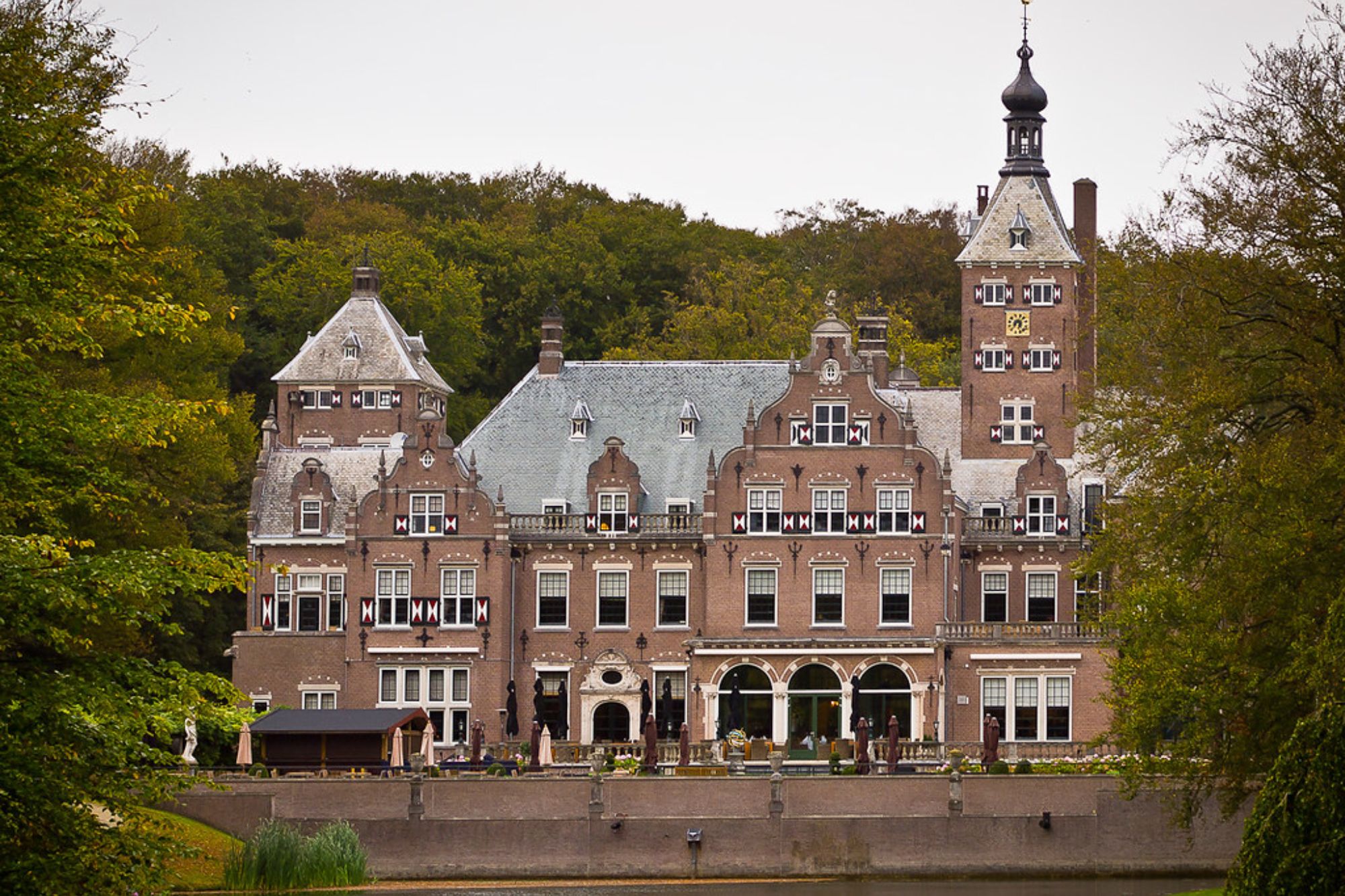
These floating pavilions extend from a historic estate near the North Sea coast – creating luxurious accommodation that hovers above a scenic lake on the property grounds. Floor-to-ceiling glass walls visually eliminate boundaries between interior spaces and the surrounding water, while private terraces extend living areas directly above reflective surfaces.
Minimal contemporary furnishings ensure nothing competes with the primary experience of floating amid natural landscapes. Sunrises and sunsets create particularly magical moments as changing light plays across water surfaces visible from every room.
Mainport Hotel
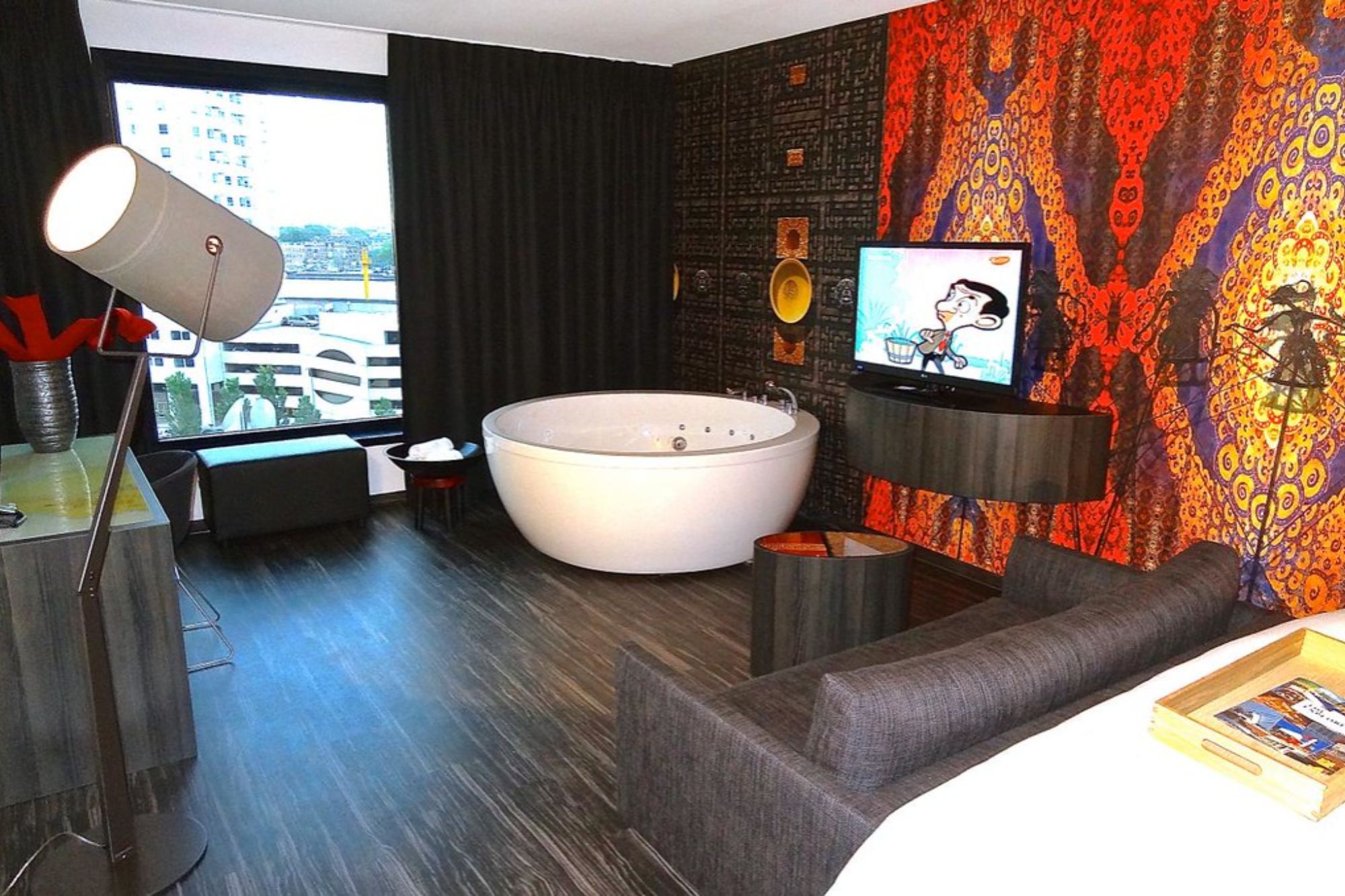
This partially floating design in central Rotterdam incorporates water elements throughout – including spectacular corner suites with private saunas perched directly above the harbor. Finnish designer Feran Thomassen created interiors that reference both maritime traditions and global port connections through materials and art selections.
Some rooms feature Japanese-style wooden soaking tubs positioned beside floor-to-ceiling windows where guests bathe while watching water traffic below. The hotel’s position at the confluence of the Maas River and Maritime District puts water at the center of the guest experience.
Like Travel Pug’s content? Follow us on MSN.
Mövenpick Hotel Amsterdam City Centre
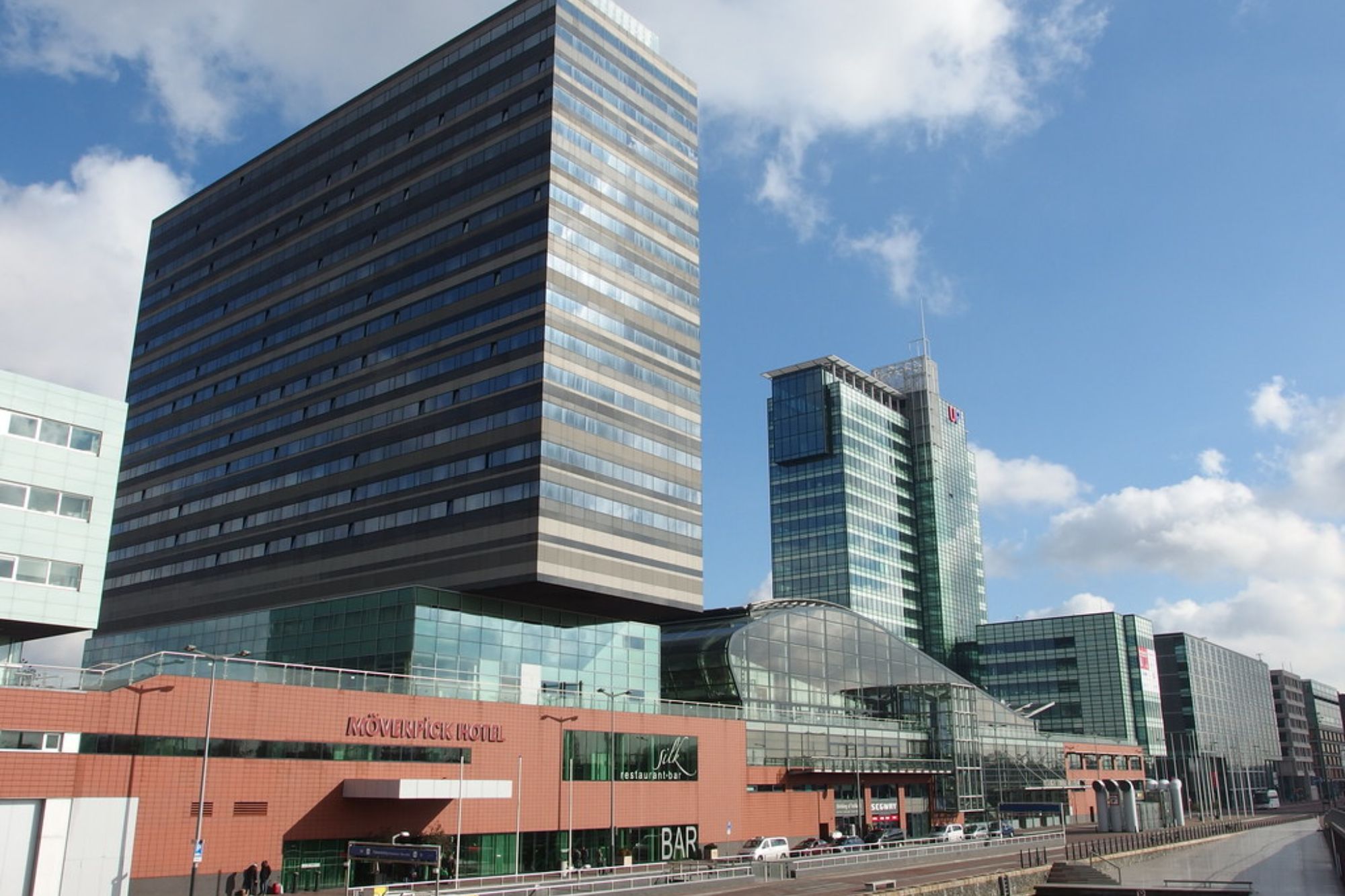
This floating section of a larger hotel complex extends dramatically over IJ waters – creating unique accommodations where full-height windows frame water views that change with weather conditions and passing vessels. Rooms feature contemporary Dutch design elements, including conceptual lighting installations inspired by harbor navigation systems and maritime safety equipment.
The breakfast room cantilevered over water creates illusions of dining aboard a ship, particularly during the morning hours when light plays across rippling surfaces below. The property connects directly to Amsterdam’s cruise terminal, making it ideal for extending water-based travels.
Houseboat Little Amstel
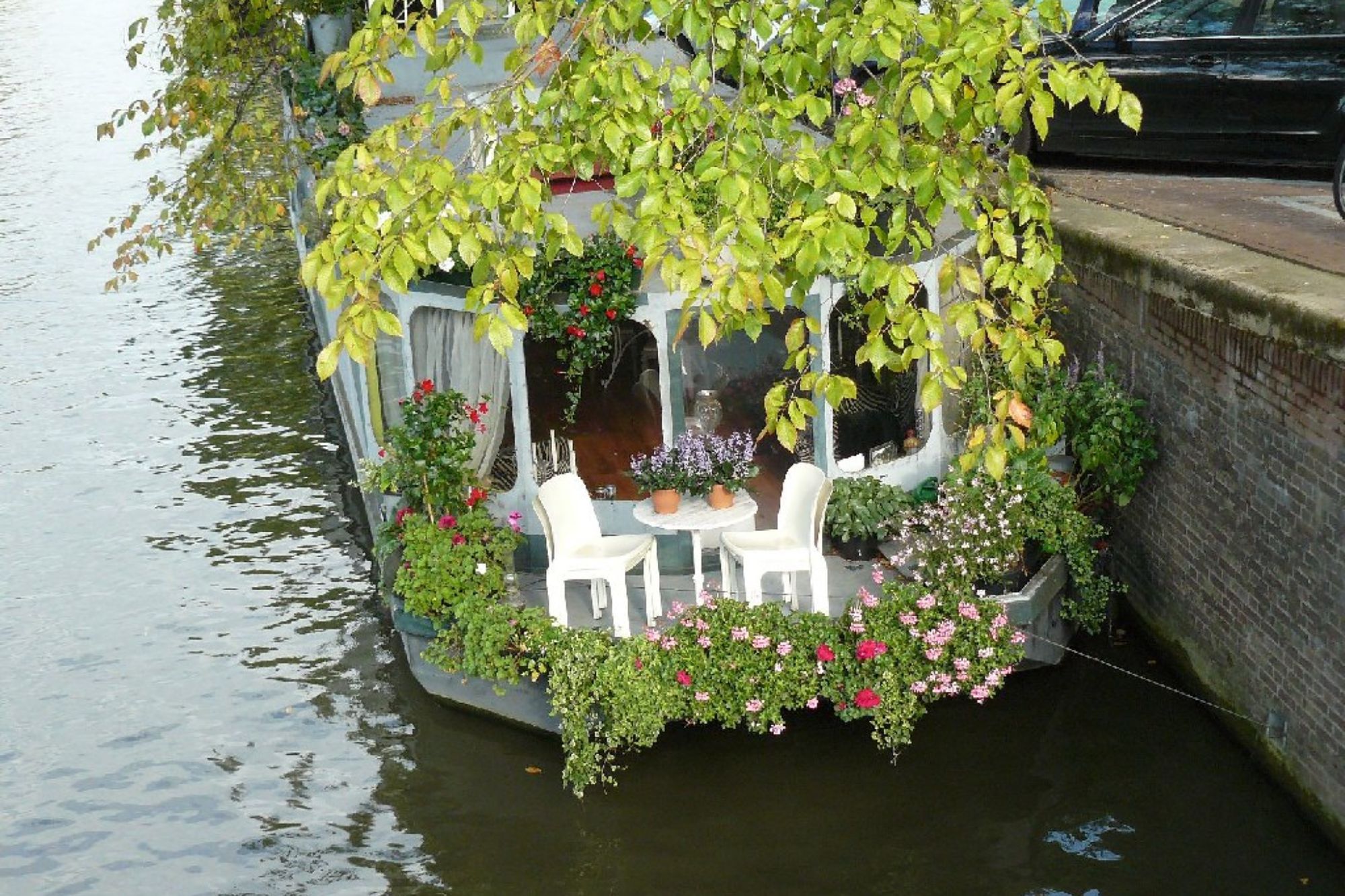
This converted traditional Dutch barge in Amsterdam’s historic canal ring offers intimate accommodation directly on protected UNESCO waterways. Original naval brass fittings and teak decking maintain maritime heritage alongside contemporary amenities, including underfloor heating that takes the chill from the morning air.
Porthole windows frame street-level views of passing pedestrians, creating unique perspectives on Amsterdam’s daily life, rarely experienced in conventional accommodations. The central location puts major attractions within walking distance while providing a peaceful water-based retreat from urban energy.
Inntel Hotels Rotterdam Centre
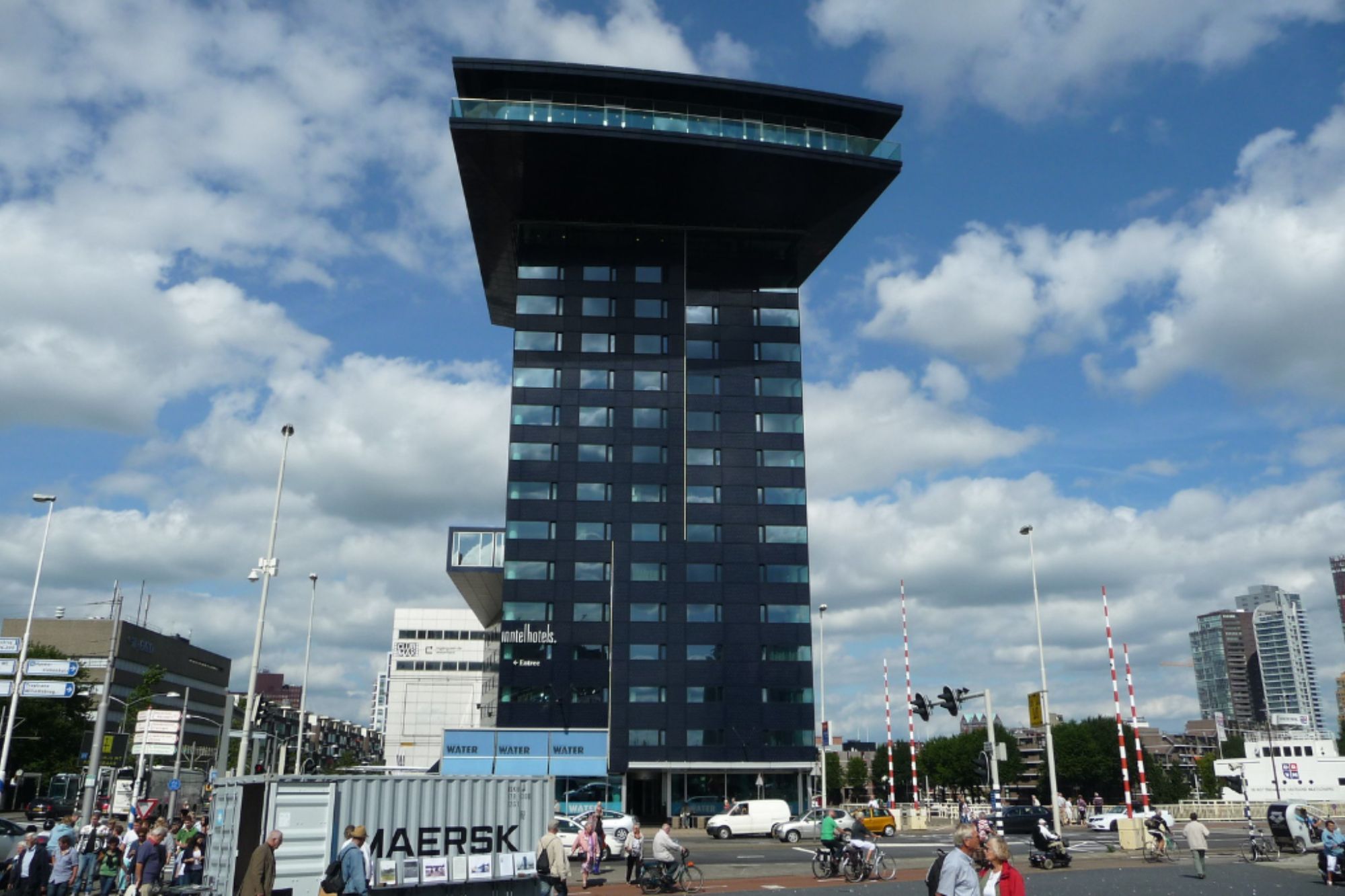
This remarkable structure appears to float above the tidal waters of the Maas River during high water periods – creating dramatic reflections that double the building’s visual impact. Corner rooms feature bath facilities positioned directly against glass walls, allowing guests to soak while watching water traffic navigate one of Europe’s busiest ports.
The hotel incorporates water themes throughout its design, from flowing fabric installations in public spaces to color palettes drawn from different water conditions observed throughout Rotterdam’s harbor system. The restaurant extends over water on stilts, enhancing dining experiences with maritime views.
Like Travel Pug’s content? Follow us on MSN.
H2OTEL Rotterdam
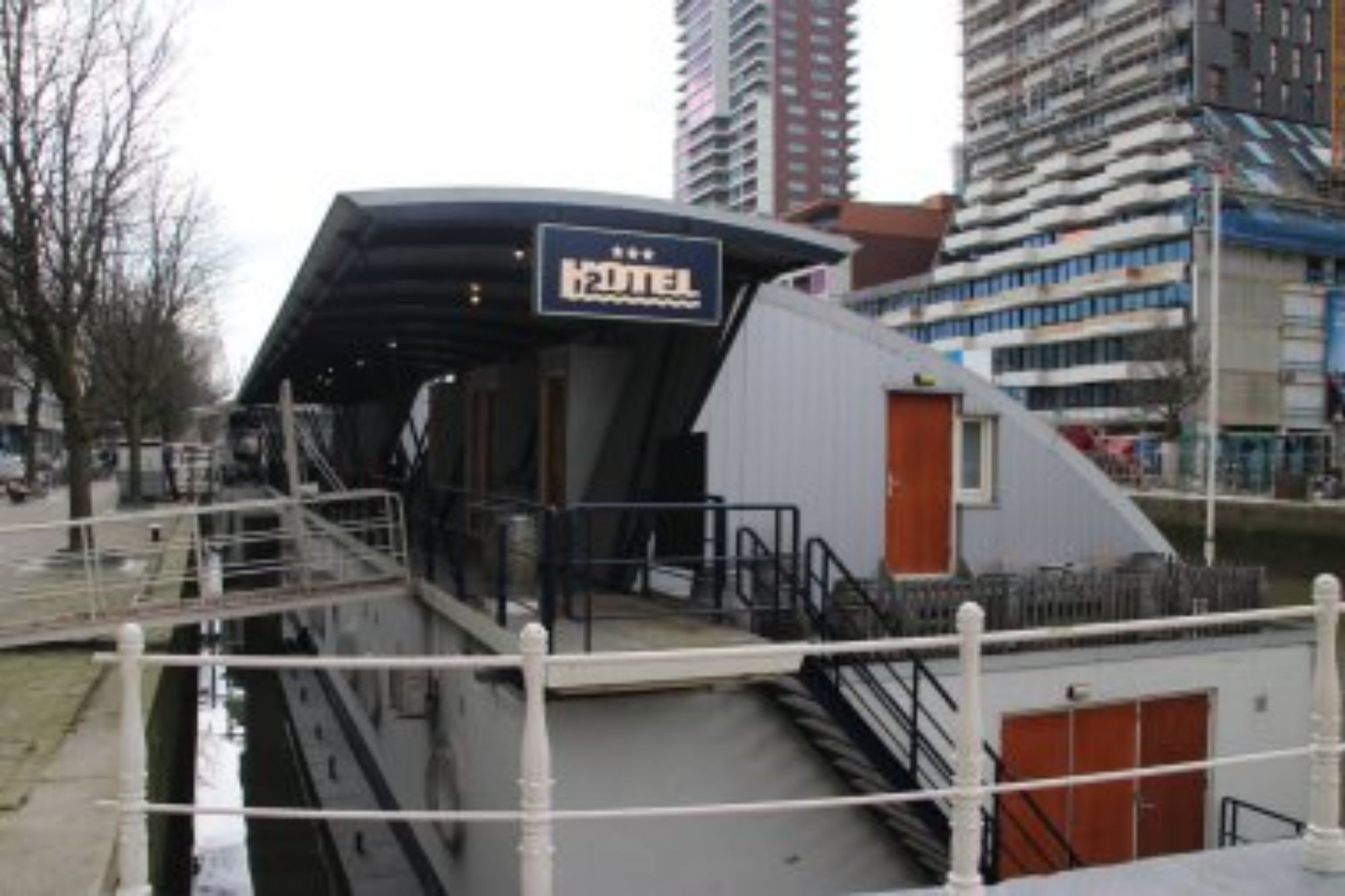
This converted grain barge in Rotterdam’s historic Wijnhaven offers industrial-chic accommodations that celebrate the vessel’s working heritage. Original steel hull and cargo mechanisms remain visible throughout public spaces, while cabin interiors feature contemporary updates that respect maritime history through thoughtful material selections.
The partially covered deck serves morning breakfast with panoramic harbor views regardless of weather conditions. Street-level entrances connect directly to Rotterdam’s vibrant waterfront district, while water-side access allows arriving by private boat during summer months.
Wikkelboat
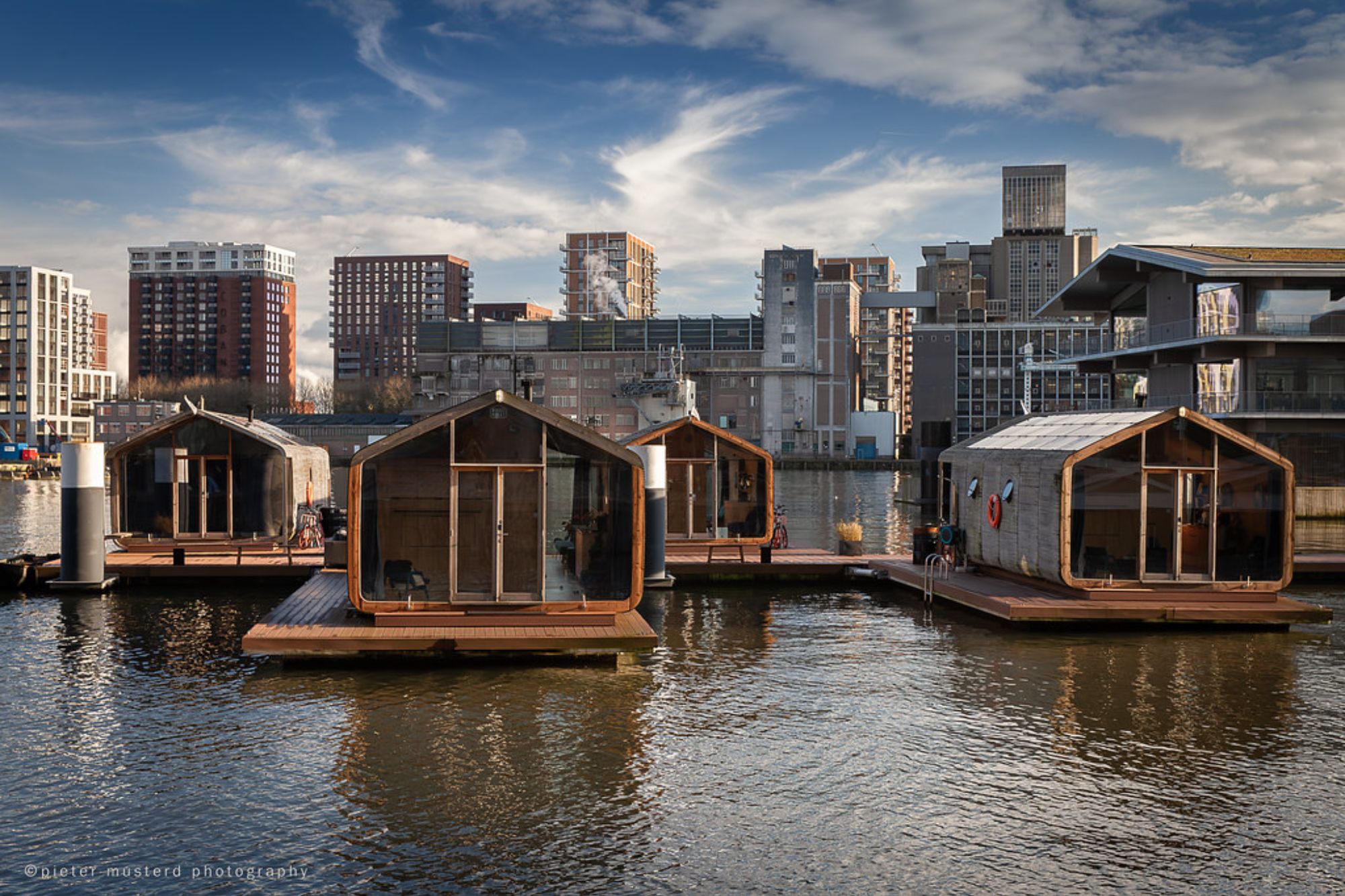
These innovative floating tiny houses constructed from recycled cardboard materials demonstrate sustainable approaches to water-based accommodation. Located in Rotterdam’s Innovation Dock, each compact structure provides surprisingly comfortable quarters through ingenious space-saving design solutions and unexpected material applications.
The curved structure maximizes interior space while creating distinctive exterior profiles that photograph beautifully against urban waterscapes. Despite modest dimensions, large windows create expansive connections to surrounding waterways, where industrial harbor activities provide constantly changing views.
UP Amsterdam
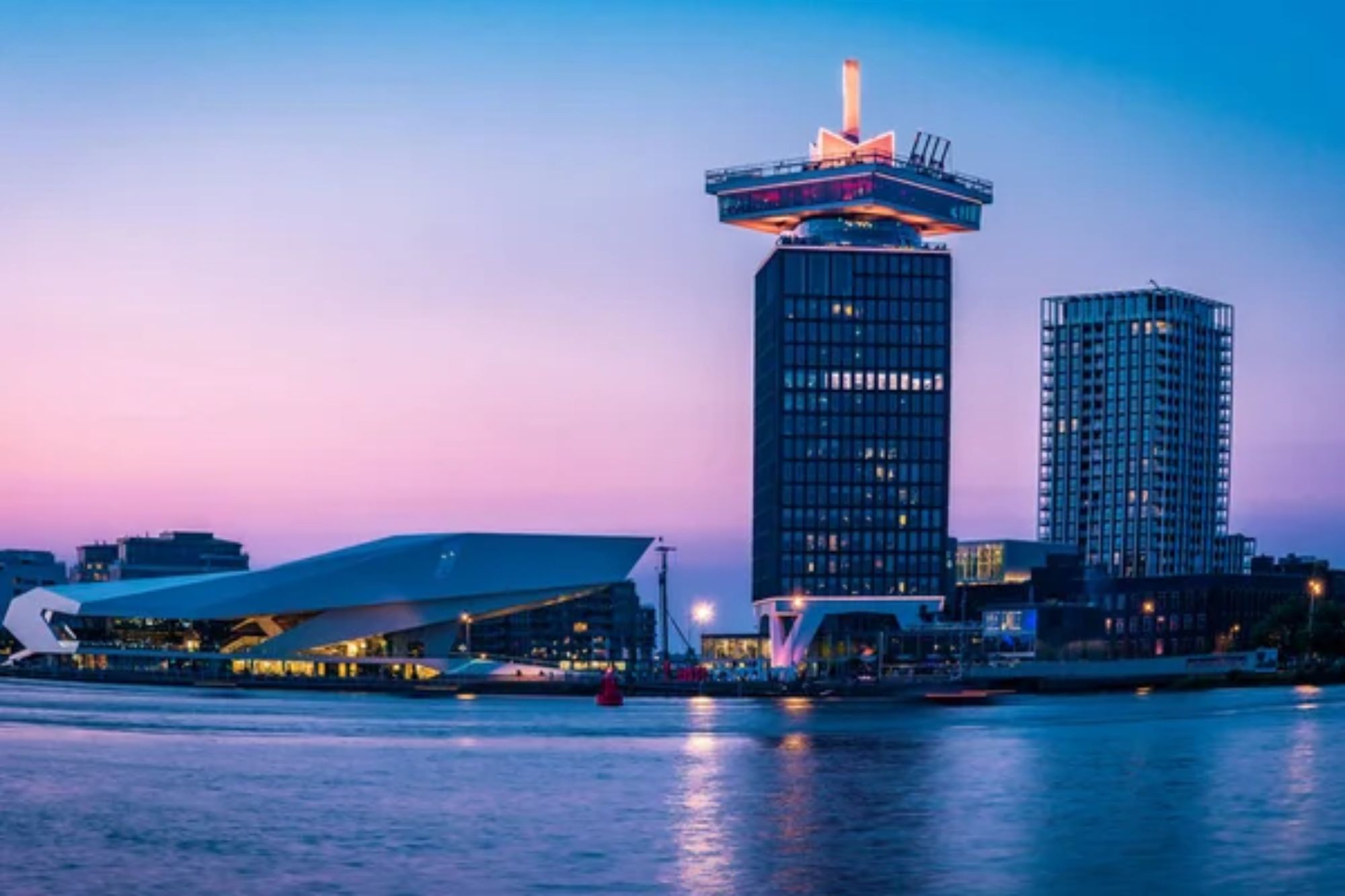
These floating apartments available for hotel-style booking represent next-generation approaches to water-based architecture. Built using sustainable materials with a minimal environmental footprint, the modern structures rise directly from Amsterdam waters on self-regulating flotation systems that adjust to changing water levels.
Interior design emphasizes natural materials and neutral palettes that direct attention toward water vistas visible through floor-to-ceiling glass walls. Private terraces extending over water create outdoor living spaces where guests interact directly with the aquatic environment while maintaining luxury accommodation standards.
Like Travel Pug’s content? Follow us on MSN.
Where Land Meets Water: The Netherlands’ Floating Innovation
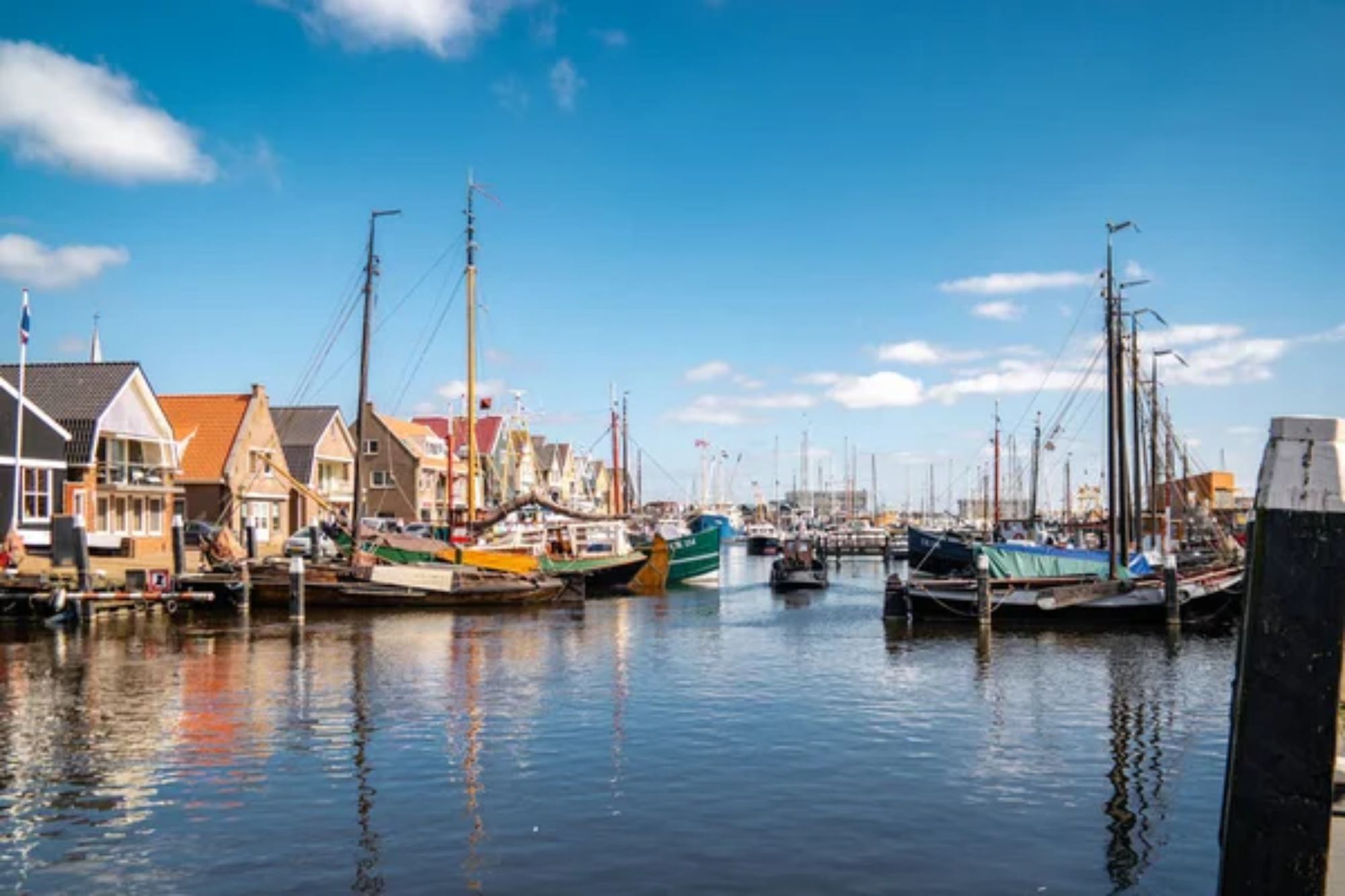
These remarkable accommodations showcase Dutch water management expertise transformed into hospitality experiences impossible elsewhere. The centuries-long relationship between Dutch culture and water management has evolved from mere survival necessity into architectural innovation that attracts visitors from worldwide.
Beyond providing memorable places to sleep, these floating hotels offer insights into potential solutions for coastal cities facing rising sea levels and limited buildable land. The gentle movement, reflective light qualities, and unique perspectives these accommodations provide create experiences that remain in memory long after returning to conventional land-based buildings.
For travelers seeking accommodations that become destinations themselves, these floating Dutch hotels transform ordinary overnight stays into highlights of Netherlands exploration.
More from Travel Pug

- Cities Growing so Fast You Won’t Recognize Them in 10 Years
- 13 Destinations Where Tourists Regularly Regret Their Trip
- 20 Obscure WWII Sites Even History Buffs Don’t Know About
- 10 Under-the-Radar Mountain Towns That Are Both Affordable and Beautiful
- 20 Abandoned Places That Feel Like Real-Life Post-Apocalyptic Movie Sets
Like Travel Pug’s content? Follow us on MSN.
